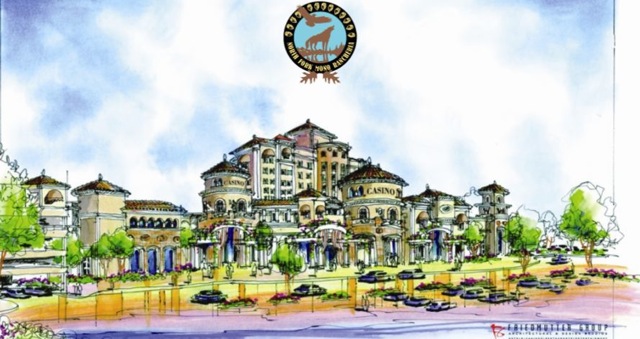On Friday a federal judge ordered the State of California to return to the bargaining table with the North Fork Rancheria of Mono Indians after he found that Governor Jerry Brown had not acted in good faith with the tribe as required by law. He gave the parties 60 days to conclude a compact or he will appoint a mediator.
In March the tribe sued the state, finally seeing a favorable decision last week.
Compact negotiations had already concluded and the state signed a gambling compact for the tribe’s Class III casino (Las Vegas style games) that was ratified by the Legislature. However voters state-wide rejected the agreement at the polls last year in Proposition 48. The tribe sought to re-negotiate but the governor said in a letter to the tribe in January that efforts to come to an agreement “would be futile.”
In their complaint the tribe argued that, “By refusing to honor the existing compact and refusing to negotiate to enter into a new tribal-state gaming compact, the state has breached its obligation (to negotiate in good faith).”
In his 23 page ruling Friday, U.S. District Court Judge Anthony W. Ishii wrote, “The state does not now contend that any of the (Department of the Interior) secretary’s determinations were incorrect, nor does it articulate a basis for its refusal to negotiate regarding the Madera parcel.”


